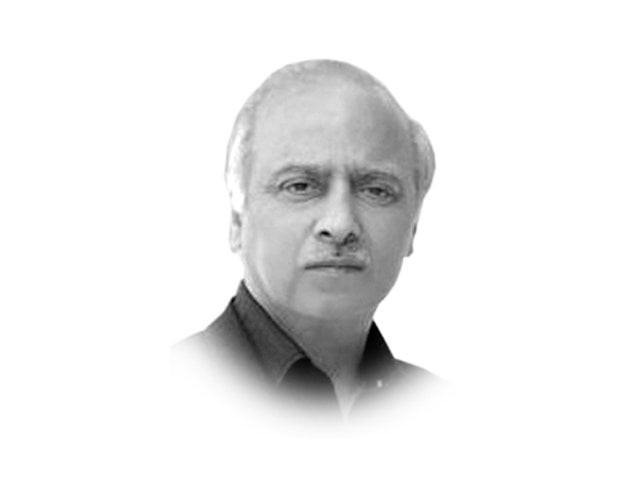Maybe it’s time we change our ways
Pakistanis overlook the fact that the country's international image is defined by the proponents of global jihadism.

The writer is the Executive Director of the Independent Centre for Research and Security Studies, and the author of Pakistan : Before and After Osama
Why should Pakistanis fume over these revelations? After all, Pakistan continues to ‘host’ a number people from different national and ethnic origins. Osama bin Laden was discovered and killed in Abbottabad. His successor, Dr Zawahiri, and several of his cohorts are believed to be stalking the mountains between Bajaur and Waziristan — all wanted by the United States.
Militants of the Islamic Movement of Uzbekistan (IMU) and Chechens are reportedly nestled somewhere in Fata’s foothills — wanted by Uzbekistan and possibly Russia. So are the Uighur Muslims of the Eastern Turkestan Islamic Movement — accused of stoking unrest in Xinjiang and wanted by China.
Members and leaders of different militant organisations are all reportedly sheltering in Pakistani border regions — militants that Kabul considers detrimental to peace and reconciliation. And last but not least — zealots roam all over Pakistan — wanted by India on several counts for their alleged possible role in acts of terrorism in Indian-held Kashmir, as well as the Mumbai attacks of November 2008.
Observers suggested that citizens from arch-rival India, which is ranked at eight, may have had a large role in Pakistan’s dismal ranking. But this factor hardly denies the ground realities mentioned above.
True, Pakistan continues to pay dearly for its involvement in the war on terror that began on October 7, 2001 under then US president George W Bush. Human and material losses far outweigh the aid that Pakistan has received from external sources. The perception of being a dangerous country where death and crime stalk the streets (Karachi, Quetta, Fata and Peshawar are the usual datelines for all the bad news coming from Pakistan) has clearly relegated the image of the country to the status of Afghanistan and Somalia, particularly in the eyes of common US and European infotainment citizens who follow news only out of a peripheral interest.
Most Pakistanis tend to overlook a very basic fact, i.e., all these proponents of global jihadism to a great degree define Pakistan’s image abroad. They constitute the core of the Indian, Afghan and American narrative on Pakistan. These narratives get multiplied globally through the huge US information machinery, which serves as the primary prism on a country that continues to bleed because of the policies it has pursued for decades, a country that most American legislators describe as a ‘double-dealer, peace-spoiler’. These policies grew out of a misplaced sense of insecurity vis-a-vis a bigger neighbour, and in the meanwhile also dovetailed with the Cold War era American policies on the Soviet Union.
The Pakistani establishment simply lapped up the anti-Soviet bogey that Washington had raised, premised on the jihadist mantra, and focused on the geopolitical-commercial interests of the United States. This tactical partnership helped the Pakistani establishment conceive ways and means to realise the old dream of wresting Kashmir from India.
It is unfortunate that even today, the hardcore elements within the establishment rarely recognise that these policies, in fact, became instruments of prolonged instability and isolation, instead of securing the country in real terms. Something considered as a protective wall has hardly served the purpose. On the contrary, the wall is holed, crumbling and burying the country’s interests under its fragments. The gauntlet thrown at India for national security is unravelling that skewed notion of security.
Published in The Express Tribune, January 8th, 2014.
Like Opinion & Editorial on Facebook, follow @ETOpEd on Twitter to receive all updates on all our daily pieces.















COMMENTS
Comments are moderated and generally will be posted if they are on-topic and not abusive.
For more information, please see our Comments FAQ